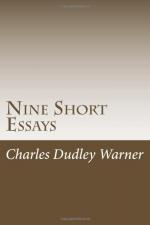when duty called, so that his behavior at the last
was not an excitement of the moment, but the result
of ancestry, training, and principle. Feeble
physically in infancy, he developed into a robust boy,
strong in mind and body, a lively, sweet-tempered,
beautiful youth, and into a young manhood endowed
with every admirable quality. In feats of strength
and agility he recalls the traditions of Washington;
he early showed a remarkable avidity for knowledge,
which was so sought that he became before he was of
age one of the best educated young men of his time
in the colonies. He was not only a classical
scholar, with the limitations of those days; but,
what was then rare, he made scientific attainments
which greatly impressed those capable of judging,
and he had a taste for art and a remarkable talent
as an artist. His father intended him for the
ministry. He received his preparatory education
from Dr. Joseph Huntington, a classical scholar and
the pastor of the church in Coventry, entered Yale
College at the age of sixteen, and graduated with high
honors in a class of sixty, in September, 1773.
At the time of his graduation his personal appearance
was notable. Dr. Enos Monro of New Haven, who
knew him well in the last year at Yale, said of him
“He was almost six feet in height, perfectly proportioned, and in figure and deportment he was the most manly man I have ever met. His chest was broad; his muscles were firm; his face wore a most benign expression; his complexion was roseate; his eyes were light blue and beamed with intelligence; his hair was soft and light brown in color, and his speech was rather low, sweet, and musical. His personal beauty and grace of manner were most charming. Why, all the girls in New Haven fell in love with him,” said Dr. Munro, “and wept tears of real sorrow when they heard of his sad fate. In dress he was always neat; he was quick to lend a hand to a being in distress, brute or human; was overflowing with good humor, and was the idol of all his acquaintances.”
Dr. Jared Sparks, who knew several of Hale’s intimate friends, writes of him:
“Possessing genius, taste, and order, he became distinguished as a scholar; and endowed in an eminent degree with those graces and gifts of Nature which add a charm to youthful excellence, he gained universal esteem and confidence. To high moral worth and irreproachable habits were joined gentleness of manner, an ingenuous disposition, and vigor of understanding. No young man of his years put forth a fairer promise of future usefulness and celebrity; the fortunes of none were fostered more sincerely by the generous good wishes of his superiors.”
It was remembered at Yale that he was a brilliant debater as well as scholar. At his graduation he engaged in a debate on the question, “Whether the education of daughters be not, without any just reason, more neglected than that of the sons.” “In this debate,” wrote James Hillhouse, one of his classmates, “he was the champion of the daughters, and most ably advocated their cause. You may be sure that he received the plaudits of the ladies present.”




